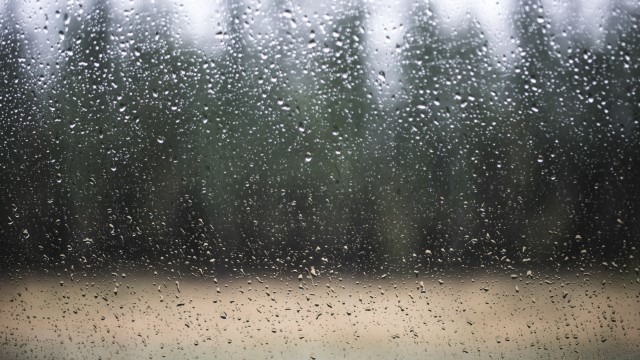Monsoon is a delightful season, providing much-needed respite from the scorching summer sun. However, the rainy season also brings with it a host of infections and health woe.
The monsoon season brings much-needed relief from the scorching heat, transforming the environment with lush greenery and cooler temperatures. However, it also ushers in a host of health challenges. Increased humidity and stagnant water create a breeding ground for various pathogens, leading to a spike in monsoon-related diseases.
From waterborne infections to vector-borne illnesses, the rainy season requires special attention to health and hygiene. In this comprehensive guide, we will explore five effective ways to deal with monsoon-related diseases, ensuring you and your loved ones stay healthy and safe. We will also highlight insights from Dr Krishna N and recommendations from some of the General Physicians in Bangalore.
1. Maintain Personal Hygiene
Personal hygiene is the first line of defence against monsoon-related diseases. During the rainy season, the risk of contracting infections increases due to exposure to contaminated water and surfaces. Here’s how to maintain hygiene effectively:
- Handwashing: Regular handwashing with soap and water is crucial. Always wash your hands before eating, after using the restroom, and after coming into contact with rainwater.
- Bathing: Take a shower immediately after getting wet in the rain. This helps wash off any potential pathogens that might have adhered to your skin.
- Clothing: Wear clean and dry clothes. Damp clothing can harbor bacteria and fungi, leading to skin infections.
- Footwear: Avoid walking barefoot, especially in stagnant water. Wear waterproof footwear to protect your feet from infections like athlete’s foot.
According to Dr Krishna N, maintaining personal hygiene can significantly reduce the risk of contracting common monsoon ailments such as fungal infections and gastrointestinal issues.
2. Ensure Safe Drinking Water
Waterborne diseases like cholera, typhoid, and gastroenteritis are prevalent during the monsoon. Contaminated drinking water is a major source of these infections. Here’s how to ensure your drinking water is safe:
- Boiling Water: Boil water for at least 10 minutes to kill any harmful microorganisms.
- Water Purifiers: Use reliable water purifiers that can eliminate bacteria, viruses, and other pathogens.
- Stored Water: Store drinking water in clean, covered containers. Avoid using the same container for multiple purposes.
- Avoid Outside Water: Refrain from consuming water from unreliable sources such as street vendors.
Consulting General Physicians in Bangalore can provide additional guidelines tailored to your local environment and water quality.
3. Adopt a Healthy Diet
A strong immune system can help fight off infections. Eating a balanced diet rich in vitamins and minerals is essential for maintaining good health during the monsoon. Here are some dietary tips:
- Fresh Produce: Consume fresh fruits and vegetables, but ensure they are washed thoroughly with clean water.
- Hydration: Drink plenty of clean water to stay hydrated. Herbal teas and soups can also be beneficial.
- Avoid Street Food: Street food is more likely to be contaminated during the monsoon. Stick to home-cooked meals.
- Probiotics: Include probiotics like yogurt in your diet to support gut health.
Dr Krishna N emphasizes the importance of a nutritious diet in bolstering the immune system and preventing illnesses.
4. Protect Yourself from Mosquitoes
Mosquito-borne diseases such as dengue, malaria, and chikungunya surge during the monsoon. Stagnant water serves as a breeding ground for mosquitoes. Here’s how to protect yourself:
- Eliminate Stagnant Water: Regularly check and eliminate stagnant water in and around your home. This includes flower pots, coolers, and gutters.
- Use Mosquito Repellents: Apply mosquito repellents on exposed skin and use mosquito nets while sleeping.
- Wear Protective Clothing: Wear long-sleeved shirts and long pants to reduce skin exposure.
- Insect Screens: Install insect screens on windows and doors to keep mosquitoes out.
General Physicians in Bangalore recommend regular mosquito control measures and awareness to prevent outbreaks of mosquito-borne diseases.
5. Strengthen Your Immune System
A robust immune system is your best defense against infections. Here are some ways to boost your immunity:
- Regular Exercise: Engage in moderate physical activities like walking, yoga, or swimming to keep your body fit.
- Adequate Sleep: Ensure you get 7-8 hours of quality sleep each night to support your immune function.
- Stress Management: Practice stress-reducing techniques such as meditation, deep breathing, and hobbies to keep your mind and body relaxed.
- Supplements: Consider taking vitamin and mineral supplements, especially Vitamin C and Zinc, after consulting with a healthcare professional.
Dr Krishna N suggests that a holistic approach to health, including regular check-ups with General Physicians in Bangalore, can help identify and address any potential health issues early on.
Conclusion
Dealing with monsoon-related diseases requires a proactive approach to health and hygiene. By maintaining personal hygiene, ensuring safe drinking water, adopting a healthy diet, protecting yourself from mosquitoes, and strengthening your immune system, you can significantly reduce the risk of falling ill during the rainy season. Following the expert advice of Dr Krishna N and other General Physicians in Bangalore can provide additional tailored guidance to keep you and your family safe.

